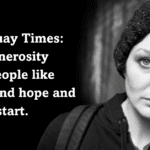The full survey results are available HERE.
81% of Irish people say the drugs problem is out of control in this country, but are more educated and aware of the causes and solutions to tackling addiction than 25 years ago, according to new research published by Merchants Quay Ireland (MQI), the homelessness and addiction charity.
Key findings from the research include;
-
- 66% of people would tend to avoid people who are drug dependent, down from 71% in similar research carried out in 2000;
- 43% believe that those who are drug dependent are not given a fair chance in society, up from 31%;
- 50% say people who are drug dependent really scare them, down from 66%;
- Only 30% of people believe people who are drug dependent only have themselves to blame, down from 57%;
- 63% of respondents say it would bother them to live near someone who is drug dependent, down from 70%;
- 36% believe in tougher sentences for those who use drugs, down from 51%.
The research is published to mark Anti-Stigma Month this July.
Speaking about the results, MQI CEO Eddie Mullins said:
“Our research shows that stigma remains a real and pressing concern for those in addiction in Ireland. While levels of stigma are falling, we found that around one-third believed people who are drug dependent have only themselves to blame.
“This stigma has very negative effects on those in addiction, and leads to exclusion from certain services and society in general. When societal views become internalised by people who are drug dependent, this can lead to social isolation, and stigmatising social views can lead to discrimination and decreased opportunities.
“However, we have found that there has been an increase in support for a health-led approach, such as harm reduction strategies, such as needle exchange, which should be readily available. We have also found large public support for a person-centred, needs-based approach to treatment.
“The fall in levels of stigma shows that a health-led approach to the problem is working and that this approach should be intensified. These findings support the call for the expansion of public health services, including low-threshold treatment access, harm reduction programs, and integrated care models”.
On foot of the findings, MQI is proposing a number of actions that would tackle addiction and stigma for policy makers to consider. These include:
-
- Ensuring that all individuals who are drug dependent have access to treatment services based on clinical need, regardless of their ability to abstain from drug use;
- Expanding Ireland’s harm reduction infrastructure nationwide, including medically supervised injection centres and free needle and syringe programmes;
- Expanded age-appropriate, evidence-based drug education beginning at the primary school level, integrated into the national curriculum;
- Increased investment in prevention and early intervention through sustained funding for community-based prevention programs, youth outreach, and early intervention services;
- Fund and implement a nationwide public awareness campaign to reduce stigma around drug use and addiction.
Note:
Merchants Quay Ireland wished to understand the general public’s perspectives towards people who use drugs or are drug-addicted through a range of attitudinal statements sourced from Bryan et al. (2000) study. The language used within the question statements were not modified.
Ipsos B&A’s nationally representative face-to-face barometer survey was utilised, conducted amongst a sample size of 1,000 adults, aged 16+. All interviews were conducted in respondents’ own homes using CAPI (tablets) machines.
The sample was quota-controlled in terms of gender, age, socio-economic status, region, and area, and data weighted to population estimates.

